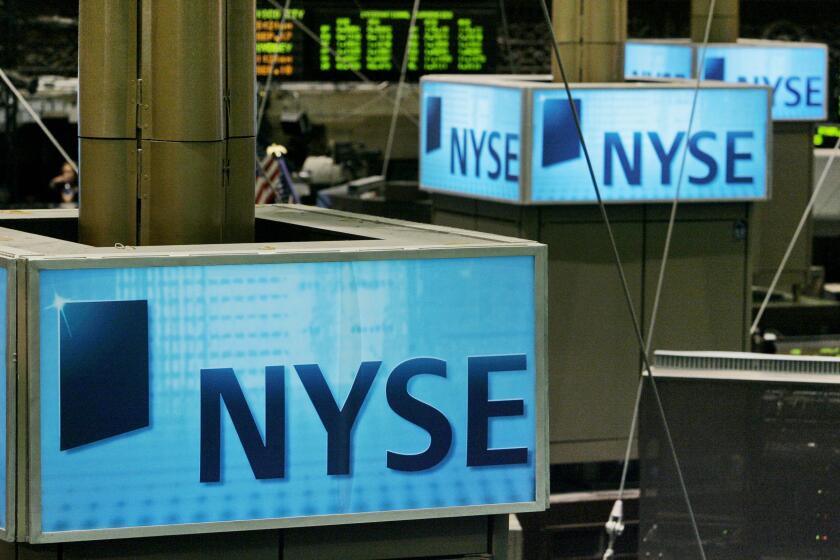Column: Another reason to hate Mylan, which jacked up the price of life-saving EpiPens: It’s a tax dodger

The EpiPen, an important item for people with severe food allergies, has gotten a lot more expensive.
- Share via
The pharmaceutical company Mylan has been taking on a boatload of vituperation — and rightfully so — for a 500% hike in the price of its lifesaving EpiPen injector, which reverses allergic reactions.
But there’s another reason to detest this remarkably amoral corporation: It’s also a tax dodger. Mylan is one of the leading exploiters of the technique known as inversion, in which a U.S. company cuts its tax bill by acquiring a foreign firm and moving its tax domicile to the acquired company’s homeland.
Mylan’s 2014 deal involved its buying a generics manufacturer from Abbott Laboratories and reincorporating in the Netherlands, the subsidiary’s home. As in all inversions, nothing else changed: Mylan’s operational headquarters remained in Pennsylvania, its main workforce didn’t relocate, and it depended on U.S. laws to safeguard its corporate interest.
At one point, Mylan, while already a Dutch company, asked U.S. antitrust officials to help it block a takeover bid from Teva, an Israeli company. Impertinently, Mylan pleaded with the U.S. government to declare it a U.S. company, which would have given U.S. antitrust officials the grounds to scrutinize the takeover by a foreign company. Teva’s takeover attempt eventually broke down for other reasons.
But the inversion deal did allow the firm to cut its U.S. tax bill.
As employers shift more cost to employees ... you’re seeing a lot of noise around EpiPen.
— Mylan CEO Heather Bresch
President Obama has labeled inversions “unpatriotic” and “one of the most insidious loopholes out there.” The Treasury Department has tightened tax rules several times to discourage them, and public disapproval has spiked a deal here and there.
Mylan’s inversion helped give this variety of loophole its noxious reputation, in part because its defense of its deal was so transparently self-serving. Its CEO, Heather Bresch, daughter of U.S. Sen. Joe Manchin (D-W.Va.), wrung her hands over the anguish she suffered in deciding to skip out on the company’s obligations as a U.S. corporation. She told the New York Times, “You can’t maintain competitiveness by staying at a competitive disadvantage. I mean you just can’t.” Credulously, the Times regurgitated that she made the decision “reluctantly, and she genuinely seems to mean it.”
Should Mylan be believed? Let’s judge it by its marketing of the EpiPen. The spring-loaded syringe-like device is designed to deliver a measured dose of epinephrine, which instantly reverses the swelling, breathing problems and other manifestations of severe reactions to peanuts, bee stings and other allergens. The pens come in two-packs in order to provide a second dose if needed. Families with allergy-prone kids have to lay in a supply of several packs, say for home and school, and replace them once a year when they expire.
Since acquiring rights to the product in 2007 when a two-pack sold for about $100, Mylan has relentlessly raised its price, to more than $600 now. That can place the product out of reach of families whose insurance doesn’t fully cover the cost, forcing them to use expired pens or resort to hand-injections, which can be dangerous.
The price increase isn’t driven by Mylan’s expenses. The manufacturing cost is essentially pennies per device. The active ingredient, epinephrine, is a generic drug that has been in use for decades, so the company isn’t working down any research and development costs.
Instead, it’s simply profiteering from market dynamics: Its main competitor, a product made by Sanofi, was taken off the market last year because of manufacturing defects. Another potential rival, from the generics company Teva, hasn’t yet won approval from the Food and Drug Administration.
Mylan’s price-gouging has enraged patients and doctors and created whitecaps on Capitol Hill. On Monday, Sen. Amy Klobuchar (D-Minn.), ranking member of the Senate antitrust subcommittee, asked the Federal Trade Commission to look into the matter. Sen. Chuck Grassley (R-Iowa), chairman of the Judiciary Committee, also has questioned the increases.
“There does not appear to be any justification for the continual price increases of EpiPen,” Klobuchar wrote the FTC. “Manufacturing costs for the product have been stable and Mylan does not need to recover the product’s research and development costs. … Not only is this alarming price increase unjustified, it puts life-saving treatment out of reach to the consumers who need it most.”
Mylan rationalizes the EpiPen’s price as the fair cost of “a life-saving drug,” as Bresch told Wall Street analysts this month. Under the circumstances, she said, “I think that you can see it falls as not an expensive product.” She did acknowledge, however, that “as employers shift more cost to employees and make that everything has got to come out of pocket before you hit your deductible … you’re seeing a lot of noise around EpiPen.”
A lot of profit too. Mylan recorded $847 million in net income last year on sales of $9.4 billion. The EpiPen was a significant contributor, with sales of $1 billion.
The company has tried to have it both ways in relation to its inversion deal. Let’s examine Bresch’s assertion that the company found it just impossible to “maintain competitiveness” under U.S. tax rules. At a 2015 forum sponsored by Fortune Magazine, she griped that “there is an unlevel playing field in our country. We really penalize U.S.-based companies.”
Is that so? As we pointed out at the time of its inversion, over the previous two years, its sales had increased 12.7% and profits 16%; among its big competitors paying putatively lower taxes, British-based GlaxoSmithKline had gained only 3.14% in sales and 11.23% in profits. Israel-based Teva’s sales had risen 11%, and its profits declined 54%. Israel’s top corporate tax rate is 26.5%, the equivalent top U.S. federal rate is 35%.
But Mylan didn’t pay that top rate, of course. Almost no U.S. corporation does; CEOs use the statutory rate as a political bogeyman. Mylan’s effective tax rate had been only 16.2% in 2013, 20% in 2012 and 17.7% in 2011.
Bresch’s contention that Mylan was a “reluctant” inverter doesn’t hold much water. At that Fortune event, she reiterated the claim that Mylan hadn’t been seeking an inversion partner but had been willing to look into a deal “if the opportunity presented itself.”
But she also seemed to say that its search for a partner was rather more proactive than that. “When we were inverting, we … looked at a lot of countries because we had the opportunity to really domicile where we wanted to, and the Netherlands was a … natural.”
Corporate mouthpieces and other defenders of inversions say there’s nothing wrong — even something admirable — in a company’s trying to do the best for its shareholders by cutting their tax bites. The argument is: “You don’t like it? Change the tax law.”
The problem with this position is that U.S. corporations have lots of advantages over foreign competitors that have to be paid for by taxes; inversions are just a way of sticking someone else with the bill.
Keep up to date with Michael Hiltzik. Follow @hiltzikm on Twitter, see his Facebook page, or email michael.hiltzik@latimes.com.
Return to Michael Hiltzik’s blog.
MORE FROM HILTZIK
Here are the lies about Social Security in Donald Trump’s new nationwide ad
These Louisiana politicians are demanding flood aid, but voted against Sandy relief
The Supreme Court’s awful Hobby Lobby decision just spawned a very ugly stepchild
More to Read
Inside the business of entertainment
The Wide Shot brings you news, analysis and insights on everything from streaming wars to production — and what it all means for the future.
You may occasionally receive promotional content from the Los Angeles Times.











